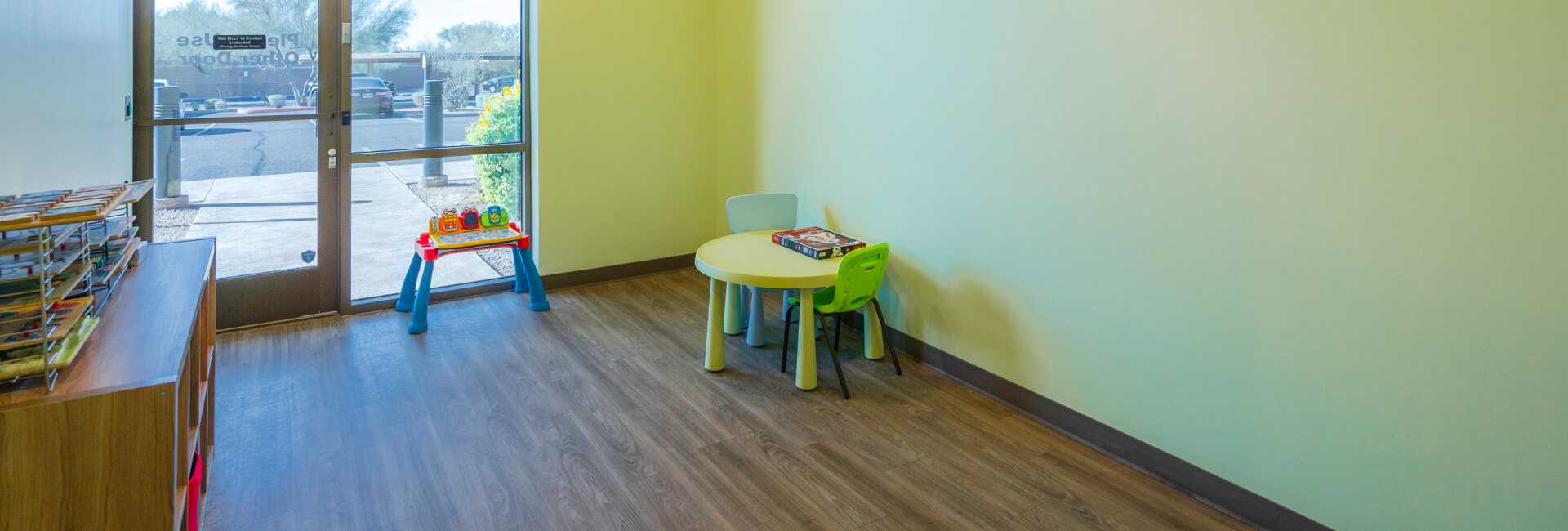Speech Therapy Can Help With a Wide Range of Issues
Communication disorders
First, it’s essential to note that “speech” therapy doesn’t apply to speaking alone. Instead, a speech therapist can help with a variety of speech and language issues.
Generally speaking, speech disorders refer to problems making sounds, while language disorders indicate issues understanding or putting words together to communicate.
A few common speech and language disorders include:
- Articulation disorders: difficulty making sounds or pronouncing words correctly
- Fluency disorders: interrupted speech or partial-word repetitions, such as stuttering
- Residence or voice disorders: problems with volume, pitch, or voice quality
- Receptive disorders: challenges understanding or processing language
- Expressive disorders: difficulty putting words together or using language expressively
- Cognitive-communication disorders: problems with communication skills involving attention, perception, organization, memory, regulation, and problem-solving
With proper assessment, both children and adults with communication disorders can benefit from speech therapy. However, it’s most beneficial for kids when implemented as early as possible. In fact, research shows that 70% of preschoolers with language issues show improved language skills after undergoing speech therapy.
How speech therapy can help
At Scottsdale Children’s Institute, our speech therapists hold a minimum of a master’s degree in their field and have extensive training in communication, language development, and its disorders. This expertise enables us to carefully evaluate and identify speech and language disorders in children.
After reaching a diagnosis, our speech therapist can develop a personalized treatment strategy for use in a small group, an inclusive education classroom, or in a one-on-one setting. The therapy usually involves the following three strategies:
Language intervention activities
These forms of therapy involve interacting with your child through play and talk. We often use items, such as books, pictures, or objects, to help them build their language skills.
Articulation therapy
This area of speech therapy focuses on exercises that produce sounds — or articulation. During these sessions, the speech therapist models the sounds and syllables and words or sentences for a child, typically while playing. Articulation therapy can also include showing a child how to move their tongue to make certain sounds.
Oral-motor (feeding and swallowing therapy)
Oral-motor therapy focuses on strengthening the muscles of the mouth used to eat, drink, and swallow. These activities focus on oral exercises, such as facial massage and lip, tongue, and jaw exercises. The speech therapist could also introduce different food textures and temperatures to increase your child’s oral awareness while eating and swallowing.
When to consider speech therapy
With this specialized approach to communication, speech therapy offers numerous benefits to children. Being able to speak more clearly will help increase their confidence and help reduce frustration when talking with others. As a result, speech therapy can offer social, emotional, and academic benefits when communication disorders develop.
Speech therapy can help with numerous conditions, such as:
- Autism Spectrum Disorder (ASD)
- Hearing impairments
- Developmental delays
- Social communication deficits
- Cleft lip, cleft palate, and craniofacial anomalies
- Brain injury or concussion
- Cerebral palsy
- Feeding and swallowing difficulties
- Genetic and chromosomal disorders
- Apraxia
- Pervasive Developmental Disorder (PDD)
- Velopharyngeal dysfunction/insufficiency (VPD/VPI)
Kids with reading issues, such as dyslexia, can also benefit from speech therapy, because it can help them learn to hear and distinguish between specific sounds and words, which can improve their reading comprehension skills.
Are you ready to learn more about speech therapy and how it can benefit your child’s unique needs? To learn more, book an appointment online or over the phone with Scottsdale Children’s Institute today.





